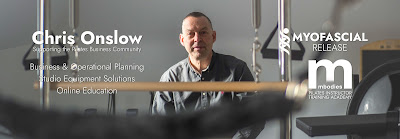Pilates Apparatus Instructor Training - Post COVID19
The debate surrounding the most effective method of Pilates Apparatus instructor training in the post - COVID19 era – whether face-to-face, online, or a hybrid approach – has become a topic of much discussion and analysis. The pandemic has undeniably transformed the landscape of professional development, particularly in specialised fields like Pilates apparatus disciplines. This shift has prompted us at Mbodies Training Academy to critically evaluate the efficacy and accessibility of various training methods to ensure we continue to meet the evolving needs of our instructors and, by extension, their clients.
Pre-COVID, the notion of online instructor training was met with scepticism, if not outright dismissal, by traditional training academies. Similarly, the idea of conducting Pilates classes remotely seemed far-fetched to many experienced instructors. However, the global pandemic necessitated a swift and comprehensive pivot to online platforms, with virtually every physiotherapist and Pilates instructor adapting to remote teaching methods. This rapid adaptation debunked previous assumptions and demonstrated the viability and potential benefits of online instruction.
Despite the initial resistance, the post-pandemic world has seen a persistent debate on professional forums and social media platforms, with some advocating for a return to exclusively face-to-face training. This stance, however, overlooks the significant shifts in economic realities and student preferences that have emerged since the onset of COVID-19. The stark reality is that many training schools and academies that clung to the traditional, in-person-only model have struggled to survive in the new normal, where flexibility and adaptability are key. Only in really high-density population areas are Training Academies able to profitably run face-to-face only instructor training and then the profit delivered from these courses tends to be marginal in comparison to the high profits on larger course numbers pre-covid.
At Mbodies Training Academy, we recognised early on the need to embrace and invest in high-quality online training solutions. We committed to professionally recording our Pilates apparatus training courses, utilising multiple cameras to ensure comprehensive and engaging learning experiences. This approach allowed us to offer students the flexibility to learn at their own pace, a feature particularly well-suited to the demands of modern life.
Moreover, we introduced a hybrid training model that combines the best of both worlds: the convenience and accessibility of online learning with the personalised support and interaction of face-to-face or virtual tutoring. This model also includes an apprenticeship-style option, where students can supplement their online studies with practical experience in a local Pilates studio.
Our experience has shown that the modality of training often depends on the course's complexity and the student's learning preferences. For courses with smaller repertoires, students typically opt for online learning supplemented by tutor assessment. In contrast, more comprehensive courses benefit from a structured combination of online resources and regular tutor interaction, whether in person or via video conferencing.
The economic argument for online and hybrid models is compelling. By investing in the initial production of high-quality online courses, training academies like Mbodies can offer more affordable options to students without compromising on the quality of education. This not only makes professional development more accessible but also allows students to allocate their resources according to their specific learning needs and preferences.
Contrary to some critics' claims, the quality of training and the competence of the instructors produced are not inherently dependent on the modality of instruction. What matters is the rigor and depth of the assessment process, which should remain consistent across all training formats. The flexibility of online learning, coupled with targeted tutor support, can often provide a more personalised and effective educational experience than traditional face-to-face courses, where time constraints limit individual attention.
As we move forward, the Pilates community must continue to embrace innovation and flexibility in training methods. The hybrid model, exemplified by Mbodies Training Academy, represents a forward-thinking approach to education that addresses the diverse needs of today's instructors and students. It challenges outdated notions of pedagogy and underscores the importance of adaptability in ensuring the highest standards of professional development in the Pilates industry.
Author: Chris Onslow - Pilates Consultant
Chris Onslow, has run Pilates focussed businesses since 1998. He and his team specialise in supporting Pilates entrepreneurs and business owners. With a rich history of owning and running successful Pilates studios in the UK, and supporting others in Europe and the Middle East, Chris has broad expertise in maximising profitability and optimising operational efficiency. His agency provides top-tier advice on selecting new, pre-owned, and hireable Pilates equipment from renowned brands such as Align-Pilates, Balanced Body or Stott-Pilates/Merrithew. As the founder of Mbodies Training Academy, Chris continues to revolutionise Pilates education, offering premier online and hybrid CPD and qualification courses for Pilates apparatus instruction and special population CPD. Discover more about how Chris can support your Pilates Business or home exercise choices at www.pilates-consultant.co.uk







Comments
Post a Comment